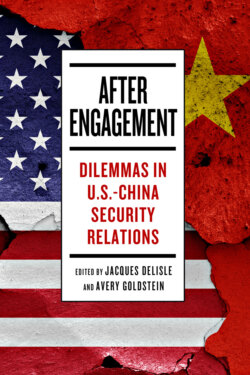Читать книгу After Engagement - Группа авторов - Страница 21
На сайте Литреса книга снята с продажи.
Why the Nature of States’ Conflicting Interests Matters
ОглавлениеUnderstanding China’s policies requires considering the interests that China is pursuing. A full characterization would include the sources of the interests—whether they reflect security or non-security motives—as well as the extent and depth of the interests. Understanding the conflict of interests between China and the United States also requires considering US interests along these same dimensions.
International relations theory often categorizes motives in terms of security and non-security motives; non-security motives are sometimes termed “greed.” Security motives reflect a state’s desire to protect its territorial integrity and sovereignty. A state motivated solely by security would be uninterested in territorial expansion if it is highly secure in the status quo. However, a state interested solely in security could be interested in territorial expansion—that is, revising the status quo—if this would increase its security. In contrast, greedy motives reflect a state’s desire to expand for reasons other than security, which could include increasing its wealth, status, or territory. A greedy state will be interested in expansion even if totally secure. A state can be simultaneously security-seeking and greedy.18
An adversary’s motives (or, more precisely, a state’s estimates of these motives) could influence a state’s policy: if facing an insecure adversary, the state should consider cooperative policies that would increase the adversary’s security, thereby reducing the value it sees in expansion. However, the state will not always find such policies to be its best option, because they could increase the state’s own vulnerability to attack and coercion and, thereby, reduce its security. In this type of situation, the state faces a security dilemma.19 Under conditions that make this dilemma severe, a state’s best option can be to forego cooperative policies entirely, even though the result could be intensified competition. In contrast, if facing a greedy adversary, the state needs to focus entirely on deterring and defending.
The extent or reach of the state’s interest captures how much territory, beyond what it currently possesses, the state wants to control. A state with truly unlimited aims wants to become the global hegemon. In a regional context, a state with unlimited aims wants to become the regional hegemon. Limited aims could vary widely—ranging from a state that wants to dominate one or more states within its region to a state that wants to control a relatively small amount of additional territory. A state’s decision about whether to make territorial concessions can depend on the extent of the adversary’s interests—concessions can make sense when the adversary has limited aims, but not when it has unlimited aims.
The depth or magnitude of states’ interests also matters. The magnitude of a state’s interest can range from vital—an interest that it is willing to pay a great deal to achieve—to minor—interests the state considers desirable but is willing to pay only a little to achieve. The larger a state’s interest, the more it should be willing to invest in military capabilities, the greater the risks it should be willing to run in a crisis, and the greater the costs it will accept to win a war that achieves them. Consequently, the requirements for successfully deterring such an adversary are greater, as is the difficulty of achieving them.
A state will often be uncertain about its adversary’s motives. Uncertainty about whether the adversary is a security seeker or a greedy state requires the state to consider policies that strike a balance between competitive and cooperative policies.20 This uncertainty is a key feature of the security dilemma: while cooperation can be risky when facing a security seeker,21 it is even risker when the state is uncertain about whether it faces a security seeker or a greedy state. Uncertainty about the extent of the adversary’s motives complicates the choice of concessions versus competition, because concessions might be preferable when facing an adversary with limited aims but dangerous when facing one with unlimited aims. Uncertainty about the depth of an adversary’s interests creates room for bargaining, leaving the state with complicated decisions about how much to offer, and creating the risk that bargaining will result in arms races and war.22
